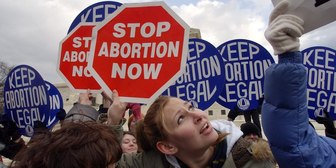A new YouGov survey asked Americans what responses they would expect to a man in U.S. professional sports coming out as gay. Majorities of Americans believe that this news would be received completely or mostly positively or neutrally by the general public, the player’s teammates, and the team’s fans. And more expect a positive or neutral response than a negative one among fans of other teams.
42% of U.S. adult citizens think that Americans overall would have a neutral response to this. One in five (20%) think it would be received positively and 19% think it would be received negatively.
35% believe that a player's teammates would have a neutral response to his coming out as gay; 26% think the response would be positive and 16% say it would be negative.
As for fans of that player’s team, 37% of Americans think the news would be received neutrally, 24% think it would be received positively, and 17% say it would be received negatively. And as for the reaction of fans of other teams, 35% of Americans think the news would be received neutrally, 14% say it would be received positively and 29% say it would be received negatively.
Among people who describe themselves as very or somewhat interested in men’s sports — 47% of Americans — the proportions who believe a man in pro sports coming out would be received positively by that player’s teammates and by fans of that player’s team are higher than among Americans overall.
In the U.S., there are already a few well-known men in professional sports who are gay. In 2013, basketball player Jason Collins became the first openly gay man playing in a major U.S. professional sports league when he signed a contract with the NBA's Brooklyn Nets. The Las Vegas Raiders' Carl Nassib came out in 2021, making him the first active openly gay NFL player. The same year, Luke Prokop became the first active player signed to a National Hockey League contract to come out as gay.
As for the potential response to a woman in pro sports coming out as a lesbian, far more Americans believe the news would be received positively by her teammates than for a man coming out as gay (40% vs. 26%). Among people who are very or somewhat interested in women’s professional sports — which is 29% of Americans — around half (53%) say a woman on a pro team coming out as a lesbian would be received positively by her teammates.
Additionally, 32% of Americans think that the news would be received positively by fans of that player’s team, higher than the 24% who say this about fans of a man’s team if he were to come out as gay.
YouGov’s survey also asked about how much of a problem homophobia is within both men’s and women’s professional sports. 34% of Americans say homophobia is a very serious or somewhat serious problem in men’s pro sports; 32% say it is a serious problem in women’s pro sports.
Other forms of discrimination are also a problem within both men’s and women’s sports, according to many Americans.
Racism is a very or somewhat serious problem in men’s professional sports, according to 40% of Americans overall and 52% of Americans who are people of color (people who are Black, Hispanic, Asian, Native American, Middle Eastern, or two or more races). Within women’s professional sports, 39% of Americans and 54% of people of color say racism is a serious problem.
38% of Americans say sexism is a serious problem in men’s professional sports. 45% of Americans, including 52% of women, say this is a serious problem in women’s professional sports.
27% of Americans say anti-semitism is a serious problem in men’s pro sports. A similar proportion (29%) say it’s a serious problem in women’s professional sports. 24% of U.S. adult citizens say Islamophobia is a serious problem in men’s pro sports and 26% say it is a serious problem in men’s pro sports.
40% of Americans believe homophobia is very or somewhat widespread in men’s professional sports; 39% believe the same about racism. Among people of color, 49% believe it is a very or somewhat widespread issue in men’s professional sports.
46% of Americans believe that sexism is a very or somewhat widespread issue in men’s sports; 25% say the same about anti-semitism, and 22% say the same about Islamophobia.
Within women’s professional sports, 49% say sexism is a widespread issue, including 56% of women. 40% say the same about racism. 32% say homophobia is a widespread issue in women’s sports; 29% say the same about anti-semitism, and 24% say the same about Islamophobia.
Few Americans believe that the five forms of discrimination included in the survey are becoming more common in either men’s or women’s professional sports.
16% of Americans say racism is much or somewhat more common now in men’s pro sports than it was 10 years ago while 37% say it’s less common now. Within women’s professional sports, 17% say racism is more common now and 28% say it is less common now. For both men’s and women’s professional sports, about one in five Americans say racism is about as common now as it was a decade ago.
15% of Americans say homophobia is more common now than it was 10 years ago in men’s professional sports; more than twice as many (35%) say it is less common. Within women’s professional sports, 18% say homophobia is more common now than it was 10 years ago and 31% say it is less common.
— Taylor Orth and Carl Bialik contributed to this article
Related:
- What Americans think about the rights of LGBTQ+ people and discrimination against them
- How well do Americans understand the rules of professional sports?
- Nearly half of Americans say there is a lot of discrimination against transgender people in the U.S.
See the results for these YouGov polls on discrimination in men's and women's pro sports.
Methodology:The YouGov polls were conducted online on May 1 - 5, 2024 and May 6 - 8, 2024, among 1,094 and 1,148 U.S. adult citizens, respectively. Respondents were selected from YouGov’s opt-in panel using sample matching. A random sample (stratified by gender, age, race, education, geographic region, and voter registration) was selected from the 2019 American Community Survey. The sample was weighted according to gender, age, race, education, 2020 election turnout and presidential vote, baseline party identification, and current voter registration status. Demographic weighting targets come from the 2019 American Community Survey. Baseline party identification is the respondent’s most recent answer given prior to November 1, 2022, and is weighted to the estimated distribution at that time (33% Democratic, 31% Republican). The margin of error for the overall sample in each survey is approximately 4%.
Image: Getty (Greg Doherty / Stringer)














